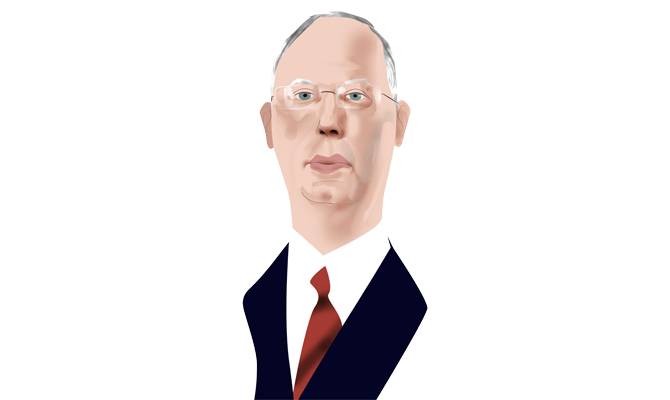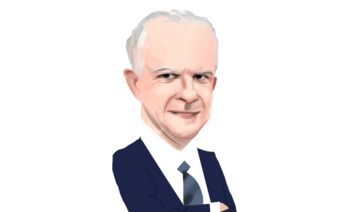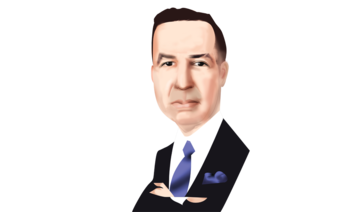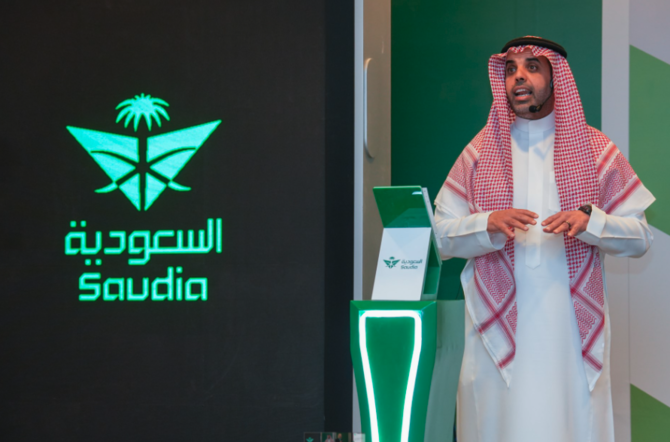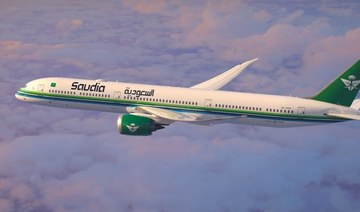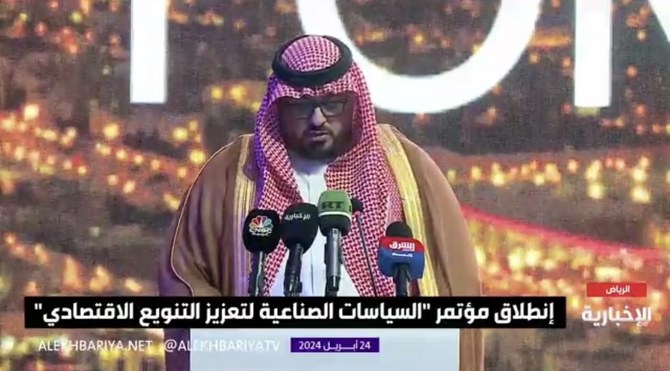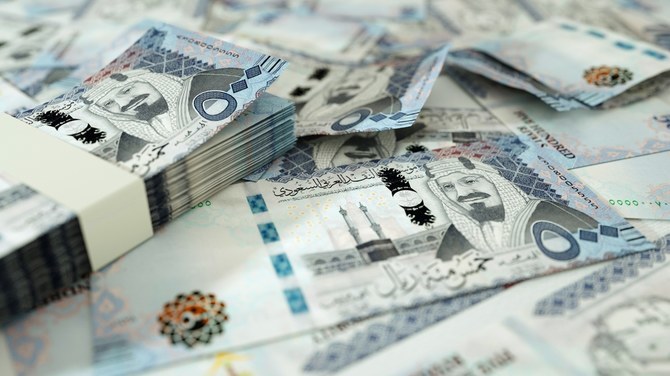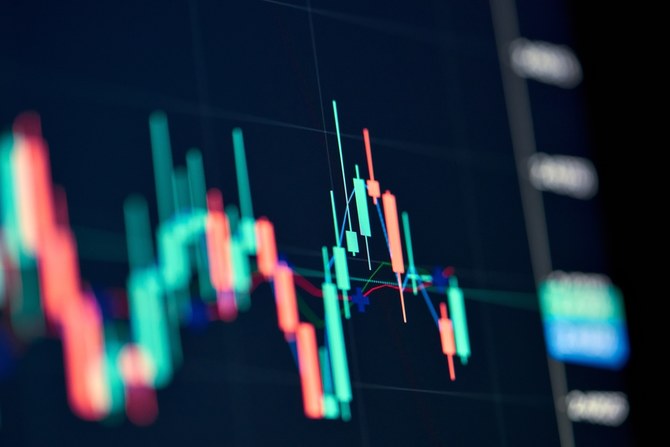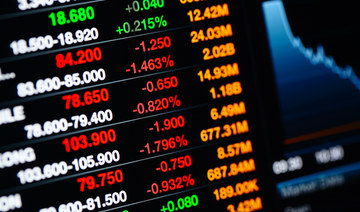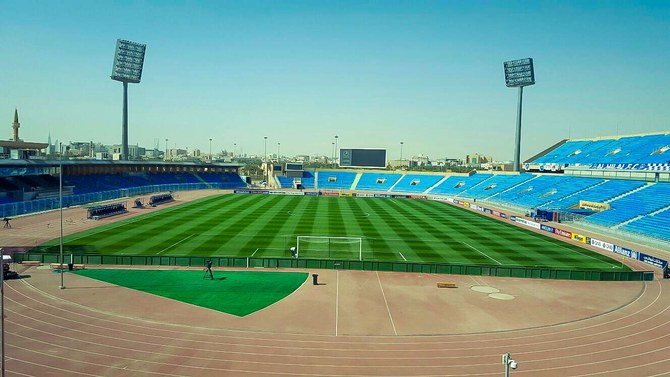Kirill Dmitriev was one of the bigger attractions on the “corridor of power” at the St. Petersburg International Economic Forum last week.
The chief executive of the Russian Direct Investment Fund found it difficult to walk the long central avenue of the ExpoForum center on the city’s outskirts without being stopped by journalists and quizzed about the many deals RDIF announced at the three-day event, sometimes dubbed the “Russian Davos”.
An investment banker and private equity merchant by trade, since he was appointed to the top job at RDIF in 2011 Dmitriev has emerged as one of the leading advocates of the “new” Russian economy that President Vladimir Putin is trying to forge, and a staunch defender of the country’s sometimes controversial foreign policy.
He is also a big friend of Saudi Arabia. “I think Russia now has the best relationship ever with Saudi Arabia, thanks to the efforts of President Putin, King Salman and Crown Prince Mohammed bin Salman,” he told Arab News during a break in his whistle-stop tour of the forum exhibits. Though he does not say so, his own efforts have also contributed significantly to the development of that relationship. For the past couple of years — since the first Future Investment Initiative conference in Riyadh in 2017 — RDIF has been in partnership with the Kingdom’s Public Investment Fund (PIF) on a range of joint investments in Russia and Saudi Arabia. Last year, that was extended to include a three-way investment fund between Russia, China and Saudi Arabia. It is big strategic stuff.
The relationship goes back further than just two years, Dmitriev revealed. “It started four or five years ago with the visit of the Crown Prince to the forum, where he met our president and our investors. It all came from that,” he said.
BIO
BORN
• Kiev, 1975
EDUCATION
• BA Economics Stanford University, California, US
• MBA Harvard Business School, US
CAREER
• Investment banker, Goldman Sachs
• Consultant, McKinsey & Co
• Private equity executive
• CEO Russian Direct Investment Fund
Business and personal relationships struck then have proved enduring. The news headlines in St. Petersburg were all about the Saudi-Russia entente in the energy industry, where the Opec+ deal to limit production has helped stabilize oil prices at a time of great volatility.
“There is no doubt that an Opec+ agreement that allows Russia, Saudi Arabia and others to stabilize oil markets can be positive, will stay in place and will be going forward regardless of any short-term decisions,” he said.
“Maybe there will be a slight increase in production, maybe it stays the same, but regardless of that short-term decision in June, Opec+ will definitely do positive things for the world economy and our countries,” he added, as energy policymakers from the Saudi and Russian sides met in St. Petersburg to hammer out production details ahead of the next meeting of oil producers later this month.
But the Saudi-Russia relationship is about more than just oil, as Dmitriev explained.
“Basically it is all encompassing. It’s not only in the area of investments, it’s not only in the area of oil, but also in terms of culture. There is an exhibit where two great Saudi artists presented their work on artificial intelligence. Who could have imagined just four years ago that two Saudi artists, both of them female, would be in a Russian exhibition on artificial intelligence?
“It shows how the world is quickly changing and it shows that Russia and Saudi Arabia are great partners,” he said, referring to a cultural exhibition that opened in the famed Hermitage museum on the first day of the forum.
Dmitriev spelled out some of the areas where Saudi and Russian interests coincide. “There is a huge opportunity for Saudi Arabia to invest in Russian infrastructure, in technology and in the petrochemicals sector. We are discussing a number of deals with Saudi Aramco through Sabic in petrochemicals.
“For Russian companies, the interest is in oil services, and we have a petrochemicals project in Saudi Arabia. In infrastructure, a Russian company has offered to build a major bridge in Saudi Arabia, and our Russian railroads want to build railways there,” he said.
There is also likely be ongoing joint interest in the field of artificial intelligence, which is a big priority area for both the Kingdom and for Russia, and could tap in to Saudi Arabia’s growing international financial network.
“We have a joint fund with PIF in technology. So that will be the vehicle to do some AI stuff as well. And by the way PIF has a great partnership with SoftBank, so that relationship is also very important,” he said.
Tourism and leisure is another area where he sees potential mutual benefit. “We believe that lots of Russian tourists would benefit from and would enjoy going to Saudi Arabia. We have a major tourism program that is very interesting for Russian tourists, including Muslim Russian tourists,” he said.
At home, RDIF’s mandate, with $10 billion of reserved capital under its management, is to invest in the country’s infrastructure — roads, bridges, airports, transport and logistics systems — in pursuit of the Russian national program to modernize and transform its economy.
Much like Saudi Arabia’s Vision 2030, Russia — the world’s biggest energy producer — realizes it must diversify its economy away from oil dependency, and has also to overcome the effect of US-led sanctions on some sections of Russian business, imposed after the annexation of Crimea in 2014.
RDIF is one of the main instruments for achieving both goals. Hitherto dependent largely on government funding, there were some suggestions at the St. Petersburg event that it could seek to widen its appeal to private sector investors — Russian and global — for the next stage of its development.
Apart from President Putin, who regularly attends the forum, the big foreign guest was President Xi Jinping of China. His presence on the same podium as Putin underlined that, as trade tensions with the West increase for both Russia and China, the two big powers are increasingly likely to seek mutual support, especially in relation to Donald Trump’s US.
Dmitriev’s position on that prospect is nuanced. “China is an important and very strategic relationship for Russia, but it’s not a tactical decision, that we think about China now when there are trade wars with the US.
“Russia has had a good relationship with China in the past — it is definitely a very strategic partner the last ten years and we have signed a number of deals with them, including with Alibaba this week. We think Russia and China can do lots of great things together, but its not a relationship of Russia and China against somebody else. Russia is open to China, to the US, to Europe and the Middle East,” he said.
There was no official American presence in St. Petersburg after the US ambassador to Moscow said he would boycott the event in protest at the detention of Michael Calvey, a big US investor in Russia, in a dispute over ownership of private equity firm Baring Vostok.
Dmitriev’s view on Calvey and the US absence was carefully worded: “Well, we see lots of investors who did come, and it’s important to have constructive dialogue. And by the way in the forum we announced a joint investment with Baring Vostok. Calvey is a very credible person.”
There were a raft of deals announced by RDIF during the forum, some involving Middle East investors, such as an infrastructure finance agreement to help build a new ring road around congested Moscow.
Perhaps the most eye-catching one involving Arab partners was an early stage project involving RDIF and other Russian corporations with DP World of the UAE to develop sea routes in the Arctic region.
Dmitriev explained the rationale. “Because of global warming, there are some things happening that open some opportunities. Russia has this frozen coast all of the seasons. Now it’s opening up and it’s possible to navigate for nine months. When you have special ships you can actually have 12 months navigation. That could cut the length of travel for many ships by half.
“So that’s a huge opportunity to reduce time of delivery, reduce costs of delivery. DP World is one of the largest infrastructure players in the world, one of the largest shipment companies that controls a huge portion of trade. Their commitment is to build with us different port facilities in the northern sea route, and it’s an example of how interesting economically this infrastructure is,” he said.
Earlier in the week, Dmitriev had stood alongside Khalid Al-Falih, the Saudi energy minister, at the Hermitage to applaud the new-found Russian-Saudi cooperation in art and technology. What began as a relationship in the energy business had obviously blossomed into something broader.
“Through oil deals and investment deals we really build friendship and great camaraderie,” he said, before weaving his way again through the media ambushes in the forum halls.



